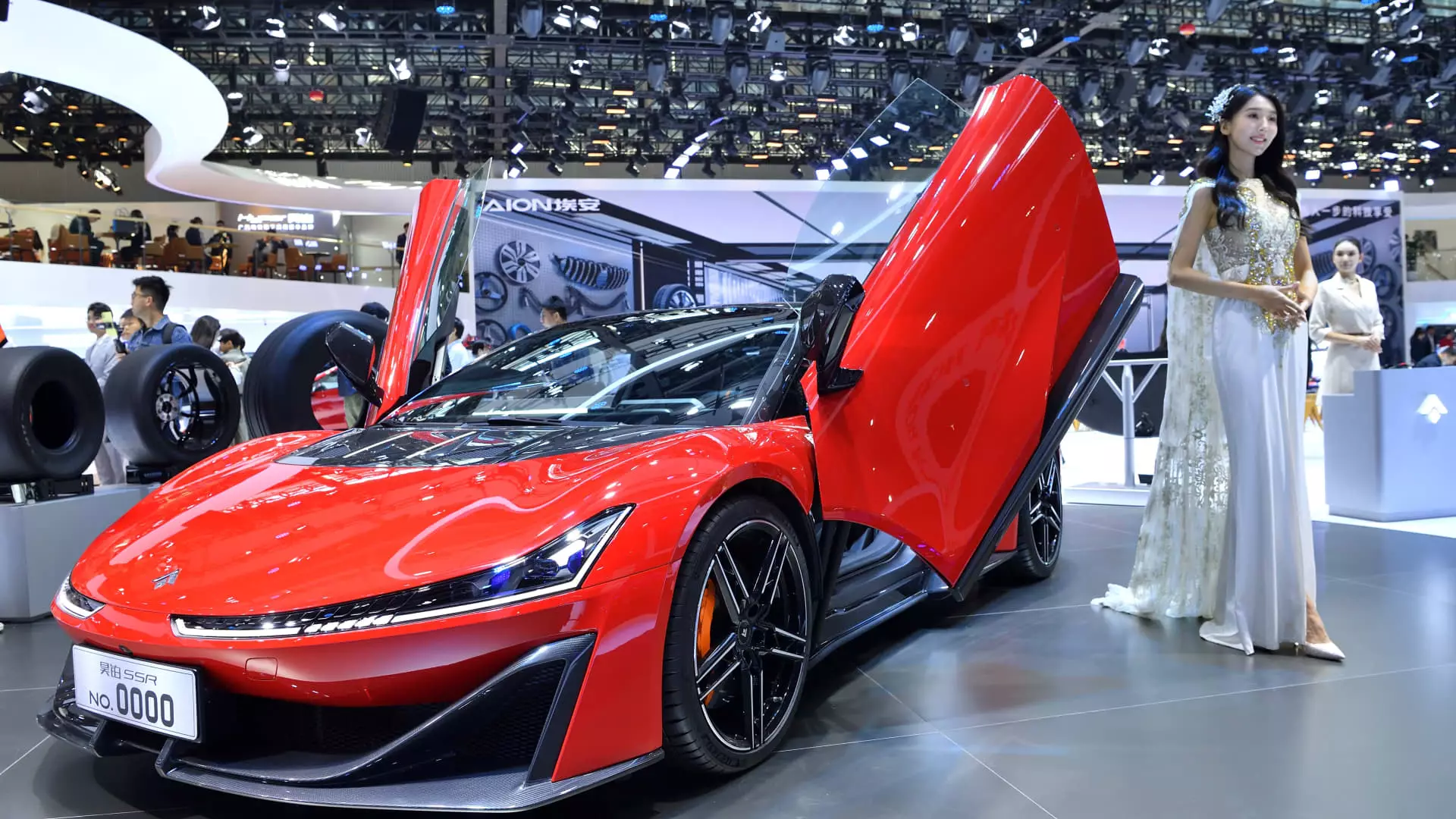Chinese automakers are poised to aggressively expand their presence in the global automotive market, aiming to capture a 33% market share by 2030, as per a recent report by AlixPartners. This ambitious target reflects a significant increase from the projected 21% market share for Chinese automakers in the current year. The growth is expected to primarily occur outside of China, with sales anticipated to surge from 3 million vehicles in the present year to 9 million units by the end of the decade. This shift represents an increase from 3% to 13% of the global market share for Chinese automakers.
The rapid expansion of Chinese automakers on the global stage has raised concerns among legacy automakers and policymakers worldwide. There are apprehensions that the competitively priced Chinese vehicles may inundate the markets, posing a threat to domestically produced models, particularly in the all-electric vehicle segment. AlixPartners predicts that Chinese automakers will penetrate various global markets, with limited growth projected for Japan and North America due to stringent safety standards and import tariffs.
In North America, Chinese automakers are expected to capture a mere 3% market share, primarily concentrated in Mexico where Chinese brands are anticipated to account for one-fifth of vehicle sales by 2030. Conversely, Chinese automakers are projected to experience substantial growth in Central and South America, Southeast Asia, the Middle East, Africa, and Europe. The market share of Chinese automotive brands in Europe is set to double from 6% to 12% by 2030, reflecting their expanding footprint in the region.
Chinese automakers are leveraging cost advantages, localized production strategies, and technologically advanced vehicles to fuel their global expansion. With a focus on meeting evolving consumer preferences, Chinese brands are gaining momentum by introducing innovative products at a quicker pace compared to legacy automakers. The report highlights that Chinese EV automakers develop new products in half the time taken by traditional automakers, underpinning their agility and efficiency in responding to market demands.
AlixPartners warns that automakers adhering to conventional business practices may face the risk of obsolescence in the wake of China’s automotive industry disruption. To remain competitive, traditional automakers must revamp their business development processes and accelerate vehicle development cycles to match the agility exhibited by Chinese automakers. Failure to adapt to the changing landscape could result in legacy automakers losing further ground to their Chinese counterparts.
The global expansion of Chinese automakers is reshaping the automotive market dynamics and posing a formidable challenge to established players. With a strategic focus on innovation, cost-efficiency, and market penetration, Chinese automakers are on track to redefine the industry landscape in the coming years. Legacy automakers must embrace this paradigm shift and proactively adjust their strategies to stay relevant in a rapidly evolving automotive ecosystem.


Leave a Reply